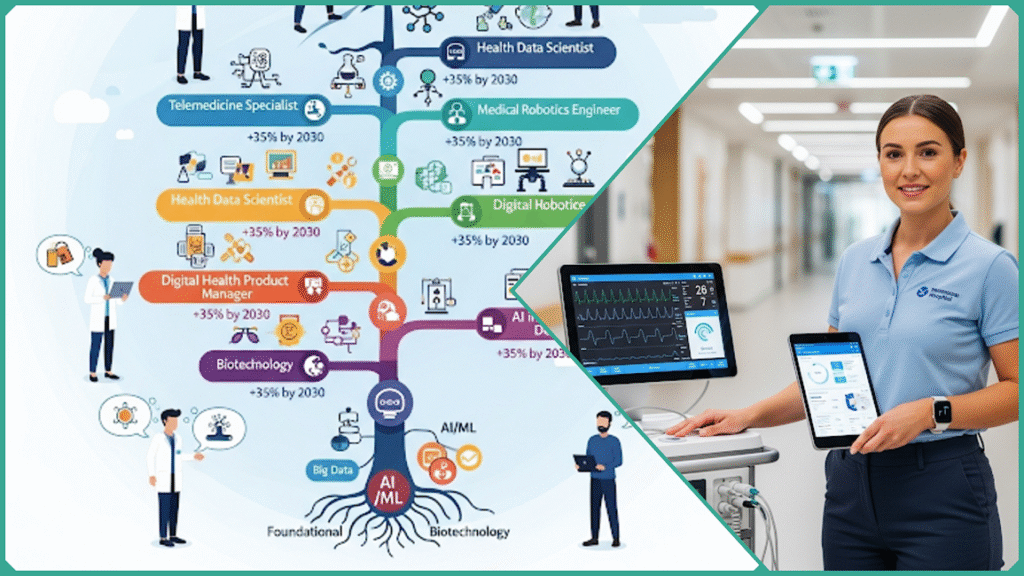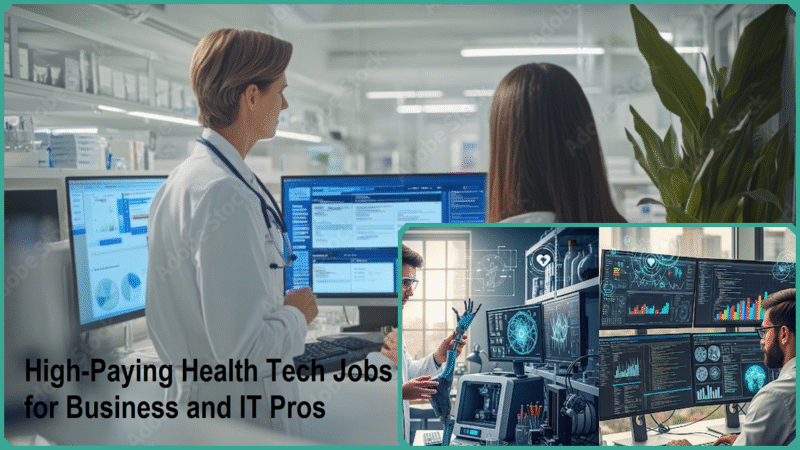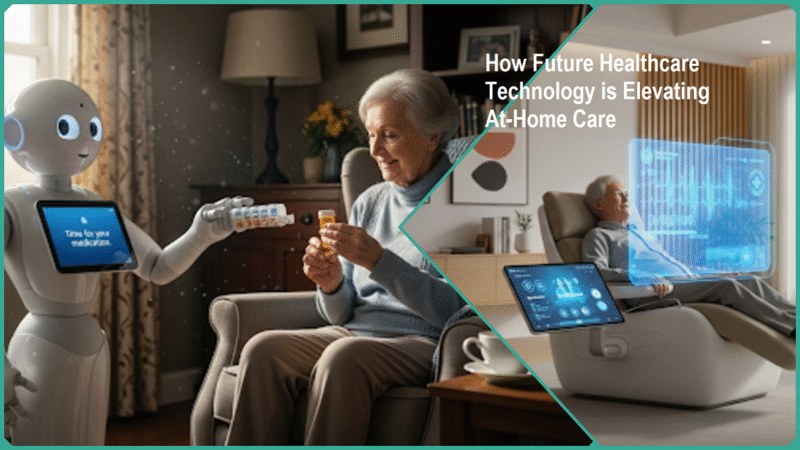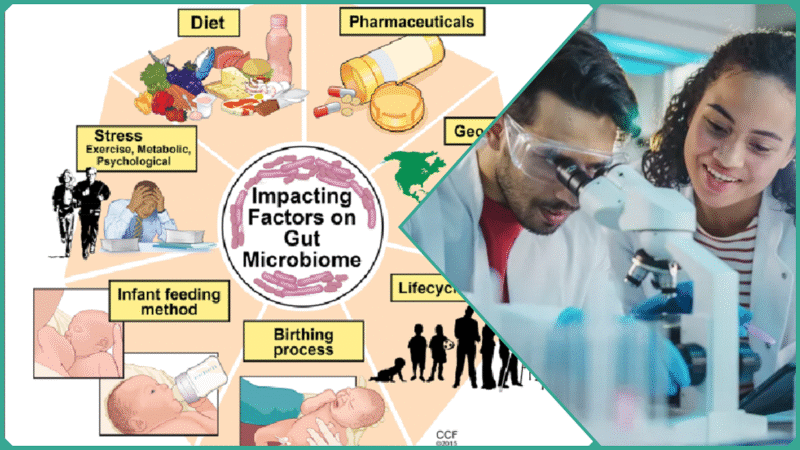What are the Fastest-Growing Careers in Health Technology?
Estimated reading time: 19 minutes
Health technology is an exciting and rapidly expanding sector that combines healthcare and digital innovation. This field offers a wealth of opportunities for career changers, students, job seekers, academics, counselors, and healthcare professionals aiming to leverage technology to enhance patient care.
Understanding the fastest-growing careers in the field of health technology is absolutely essential for anyone aiming to make well-informed decisions regarding their education, skills development, and long-term career planning. This knowledge helps individuals strategically choose the right educational paths, acquire relevant skills, and position themselves effectively for future job opportunities in this rapidly evolving industry.

With the world’s population growing older at an unprecedented rate, the increasing prevalence of chronic diseases, and the rapid digital transformation taking place within healthcare services, careers in health technology offer not only strong job security but also highly competitive salaries and the opportunity to make a truly meaningful and lasting impact on people’s lives and well-being.
Key Concepts in Health Technology Careers
Health technology careers uniquely blend the fields of healthcare with information technology, data management, patient care, and a wide range of innovative technological solutions designed to improve health outcomes.
This rapidly evolving and dynamic field encompasses several key concepts that form the essential foundation for emerging roles, specialized career paths, and exciting opportunities in the health technology sector:
Health Informatics
Health informatics revolves around the use of electronic health records (EHRs) and other health data systems to improve patient care and streamline healthcare operations. Professionals in this area manage and analyze clinical data, helping healthcare providers make data-informed decisions, improve outcomes, and enhance service delivery.
Health informatics specialists often work on the implementation and optimization of EHR systems, data quality assurance, and compliance with health regulations. This field bridges clinical knowledge with information technology and plays a pivotal role in modernizing healthcare data management systems.
Telehealth
Telehealth is the provision of healthcare services remotely using digital communication tools such as video conferencing, mobile apps, and remote monitoring devices. This concept expands healthcare access to patients in underserved or distant locations and offers convenience and flexibility.
Emerging roles in telehealth require individuals skilled not only in clinical care but also in digital communication technologies and remote patient management. Telehealth professionals facilitate virtual consultations, patient education, and chronic disease monitoring through technology.
AI and Machine Learning in Healthcare
AI and machine learning technologies utilize advanced computational algorithms to thoroughly analyze vast and complex datasets. These sophisticated techniques play a crucial role in enabling highly personalized diagnosis and tailored treatment recommendations.
Additionally, they support predictive analytics that can forecast patient outcomes and disease progression. Beyond clinical applications, AI and machine learning also contribute significantly to administrative automation, streamlining workflow processes and improving efficiency within healthcare systems.
Careers in this area require expertise in programming, data science, and healthcare to develop technologies such as diagnostic coding systems, image analysis software, and decision-support tools. AI healthcare specialists work collaboratively with clinical teams to design solutions that improve accuracy, efficiency, and patient outcomes.
Cybersecurity in Healthcare
With increasing digitization, protecting healthcare data and infrastructure from cyber threats has become critical. Cybersecurity roles focus on safeguarding patient information, securing EHR systems, ensuring compliance with healthcare privacy laws (like HIPAA), and defending against breaches and ransomware attacks.
Professionals working in this field integrate extensive knowledge of IT security protocols along with a deep understanding of healthcare regulations to develop and implement highly effective and robust defense mechanisms that protect sensitive information. They ensure that security measures comply with legal standards while addressing the unique challenges of the healthcare environment.
Data Analysis
Data analysts in healthcare interpret clinical, operational, and financial data to support decision-making, improve healthcare delivery, and enable research. They utilize statistical tools, programming languages such as Python or R, and data visualization platforms to extract insights and identify trends.
Their work plays a crucial role in assisting hospitals, insurance companies, and various healthcare organizations by helping them optimize their resources more effectively, improve the quality of patient care significantly, and promote the advancement of evidence-based medicine throughout the healthcare system.
In Summary
Together, these important concepts form the fundamental backbone of the rapidly advancing health technology landscape, playing a crucial role in shaping the wide array of fast-evolving career opportunities that are available today.
Professionals who develop and combine expertise and skills in both healthcare and technology across these specific areas can confidently expect to be positioned at the forefront of innovation, progress, and significant growth within the healthcare industry.
Current Trends and Developments in Health Technology Careers
The health technology sector is currently experiencing a remarkable and transformative period of rapid growth, driven largely by an accelerated wave of digital transformation that has been significantly influenced and intensified by the global COVID-19 pandemic.
This major shift has acted as a powerful catalyst, sparking widespread and unprecedented adoption of telehealth services as well as sophisticated artificial intelligence (AI) tools across diverse healthcare environments and settings around the world.
- Telehealth expansion remains a hallmark trend, fueled by demand for remote and accessible care, especially in underserved areas. Telehealth nurses, virtual care coordinators, and remote monitoring specialists find increasing roles as digital communication tools link clinicians with patients beyond traditional settings. This shift improves healthcare access and chronic disease management, while offering healthcare providers flexibility.
- AI and machine learning technologies are maturing rapidly in 2025, playing a pivotal role in personalized patient care, diagnostics, predictive analytics, and administrative automation. Generative AI tools are becoming integrated into clinical workflows to reduce staff burdens and improve decision-making accuracy. Advances include AI-powered diagnostics in radiology and pathology, real-time data analytics dashboards for outcomes tracking, and automated clinical decision support systems (CDSS).
- Chronic disease management, including conditions like diabetes and heart failure, is benefiting tremendously from smart implants, wearables, and Internet of Medical Things (IoMT) devices providing real-time patient data critical to early intervention. Remote patient monitoring (RPM) technologies are mainstream and help reduce hospital readmissions and improve quality of life. Virtual hospitals delivering hospital-level care at home exemplify innovative models scaling globally.
- The health workforce shortage and rising patient demand drive growth in hybrid roles combining clinical expertise with strong technological skills. Professionals blending nursing or medical knowledge with AI, data analysis, or health informatics capabilities are especially valuable, allowing healthcare organizations to harness data-driven insights for better patient outcomes.
The US Bureau of Labor Statistics (BLS) projects healthcare industry employment growth of about 13% through 2031, significantly outpacing the average across all occupations. Digital health tool investments are becoming a strategic priority for over 70% of healthcare organizations surveyed globally, with 90% of health system executives expecting digital adoption to accelerate further in 2025.
Other notable trends that have been observed include the following significant developments and emerging patterns:
- Integration of advanced blockchain technology to ensure secure, tamper-proof management of patient data, enhancing data integrity and privacy while maintaining full compliance with relevant regulations and standards. This approach significantly improves the reliability and traceability of patient information throughout its lifecycle.
- There is a rapidly growing use of augmented reality (AR) and virtual reality (VR) technologies in various critical areas such as enhancing surgical precision, advancing medical education, and improving patient rehabilitation processes. These innovative tools are increasingly being integrated into healthcare practices to provide more accurate surgical interventions, immersive learning experiences for medical students, and effective rehabilitation programs for patients recovering from various conditions. The expanding adoption of AR and VR is transforming traditional medical approaches and contributing significantly to better clinical outcomes and educational advancements.
- Personalized medicine is rapidly advancing, driven by significant breakthroughs in genomics and sophisticated AI analytics. These innovations are greatly enhancing the ability to detect diseases early and develop highly targeted therapies tailored to individual patients. This progress is transforming healthcare by enabling more precise diagnoses and customized treatment plans that improve outcomes and reduce side effects.
- There is an emerging and rapidly growing widespread use of voice-enabled technology designed specifically to help reduce the significant clinical administrative burdens faced by healthcare professionals. This innovative approach is increasingly being adopted across various medical settings to streamline administrative tasks and improve overall efficiency.
- Expansion and enhancement of interoperable digital health ecosystems to facilitate improved and seamless data sharing, as well as to significantly boost patient engagement and participation in their own healthcare management.
Healthcare is currently at the forefront of a vast and transformative digital revolution, where innovative data-driven approaches, AI-augmented technologies, and patient-centered care models are actively shaping and building the future landscape of medical services.
Careers in health technology that align with these emerging trends present not only robust growth opportunities but also offer exciting challenges and the unique chance to make a significant and lasting impact on both the quality of healthcare provided and its accessibility to diverse populations around the world.
Key Fastest-Growing Careers in Health Technology
As technology continues to rapidly transform and redefine the healthcare landscape, there is an increasing and urgent demand for skilled professionals who possess the ability to seamlessly blend and integrate the worlds of medicine and technology.
Careers in this evolving sector are not only highly resilient to future technological advancements and industry changes but also offer deeply meaningful and impactful opportunities to enhance patient care, improve health outcomes, and advance public health on a broader scale.
Below, we highlight some of the fastest-growing and most in-demand roles within this dynamic and exciting field.
Nurse Practitioners (NPs)
- Projected growth: 45% by 2030
- Nurse practitioners play a crucial role in primary care by diagnosing, treating, and prescribing medications. They help alleviate physician shortages and offer more accessible care, especially with expanding telehealth opportunities. Salaries typically range from $120,000 to $150,000, with psychiatric NPs earning on the higher end. To enter this field, one begins as a registered nurse (RN) and completes a master’s degree as an NP, specializing in family care, psychiatry, or acute care.
Telehealth Nurses
- Projected growth: Over 300%
- Telehealth nurses provide virtual care using digital communication tools, requiring strong technological skills alongside nursing expertise. This role has grown explosively due to the rapid adoption of remote healthcare services. Salaries generally range from $80,000 to $110,000. Becoming a telehealth nurse requires an RN license plus specific telehealth training.
AI Healthcare Specialists
- Projected growth: Over 40%
- These professionals integrate artificial intelligence in healthcare to improve diagnostics, robotic surgery, and data analysis. They blend healthcare knowledge with programming and machine learning expertise. Salaries range broadly from $100,000 to $150,000 or higher, depending on specialization. Relevant education includes degrees in computer science, biomedical engineering, or data science with a healthcare application.
Health Information Technologists
- Projected growth: 13%
- Focused on managing electronic health records (EHRs) and ensuring data security, health information technologists are vital to healthcare digital infrastructure. Salaries range between $70,000 and $95,000. This career requires knowledge of health regulations, data privacy laws, and information systems, often backed by certifications like RHIT (Registered Health Information Technician).
Data Analysts in Healthcare
- Data analysts are key in interpreting complex healthcare data to aid clinical decisions and healthcare operations. They require mastery of SQL, Python, data visualization tools, and statistics. Salaries vary widely but typically start around $70,000 and grow with expertise. Their insights improve patient outcomes, resource allocation, and research productivity.
Medical and Health Services Managers
- Projected growth: 28%
- These managers oversee healthcare facility operations, ensuring regulatory compliance and efficient delivery of care. Salaries range from $110,000 to $160,000, reflecting leadership responsibilities. Educational backgrounds typically include healthcare administration or public health degrees, supported by management experience.
Software Engineers in Healthcare
- Software engineers develop applications, platforms, and systems that digitalize healthcare—from electronic records to telehealth services. They require proficiency in programming languages such as Java, Python, or C#. Salaries range broadly depending on experience and role complexity. Their work supports secure, interoperable, and user-friendly healthcare technology infrastructure.
Additional Emerging Roles and Responsibilities:
- Physician Assistants are experiencing a significant growth rate of 31%, with annual salaries ranging from $115,000 to $140,000. This profession is expanding rapidly due to increasing demand in healthcare services, offering lucrative earning potential and promising career stability for those entering the field.
- Genetic Counselors are experiencing significant growth in demand, with a projected increase of 21% in job opportunities over the coming years. These professionals play a crucial role in the field of personalized medicine by helping patients understand and make informed decisions about their genetic information. The typical salary range for Genetic Counselors falls between $85,000 and $120,000 annually, reflecting the specialized knowledge and skills required for this important healthcare role.
- Biomedical Software Developers who specialize in creating advanced diagnostic platforms and innovative wearable applications designed to enhance health monitoring and patient care play a crucial role in the intersection of technology and medicine. These professionals focus on developing sophisticated software solutions that enable accurate diagnostics and continuous health tracking, ultimately improving patient outcomes and streamlining healthcare processes. Their expertise contributes significantly to the evolution of personalized medicine and the overall advancement of medical technology.
These careers represent a dynamic blend of clinical skills, advanced IT proficiency, and in-depth data analytics expertise, highlighting the highly interdisciplinary nature of modern health technology jobs.
They provide robust growth trajectories, competitive and rewarding salaries, and the unique opportunity to make a meaningful and lasting impact on patient care as well as overall healthcare system efficiencies. These roles are essential in driving innovation and improving outcomes across the healthcare industry.
Educational Pathways and Skills Needed for Fastest-Growing Health Technology Careers
Transitioning into a career in health technology involves a variety of educational preparations that can range from obtaining professional certifications to pursuing advanced degrees, all depending on the specific demands and requirements of the role you are aiming for. This process ensures that individuals are equipped with the necessary knowledge and skills to excel in their chosen positions.
Below is a detailed overview of the various educational pathways available, along with the key skills that are essential for success in major careers within the health technology sector:
Nurse Practitioners (NPs)
- Education: Bachelor of Science in Nursing (BSN) followed by a Master’s degree (MSN) or Doctor of Nursing Practice (DNP).
- Licenses: Advanced Practice Registered Nurse (APRN) licensure and specialty certifications.
- Skills: Clinical expertise, patient assessment, diagnostic reasoning, prescribing, and telehealth proficiency.
Telehealth Nurses
- Education: Registered Nurse (RN) qualification via an associate or bachelor’s degree in nursing.
- Certifications: Additional telehealth nursing certification to master digital communication and remote care technologies.
- Skills: Clinical care delivery, technology adoption, virtual patient engagement, and adaptability.
AI Healthcare Specialists
- Education: Bachelor’s or Master’s degree in computer science, biomedical engineering, data science, or related fields with a healthcare specialization.
- Training: Hands-on programming experience in languages like Python, R, and applied machine learning frameworks.
- Skills: AI algorithm development, healthcare data modeling, clinical workflow integration, and problem-solving.
Health Information Technologists
- Education: Associate or bachelor’s degree in health informatics, health information management, or information technology.
- Certifications: Registered Health Information Technician (RHIT) or Certified Coding Specialist (CCS).
- Skills: Electronic health records (EHR) management, regulatory compliance (HIPAA), data security, and database administration.
Data Analysts in Healthcare
- Education: Degree in statistics, computer science, public health, or related quantitative fields.
- Skills: Data querying (SQL), statistical analysis, programming (Python, R), data visualization (Tableau, Power BI), and healthcare domain knowledge.
- Certifications: Data science or analytics certifications enhance employability.
Medical and Health Services Managers
- Education: Bachelor’s or Master’s degree in healthcare administration, public health, or business administration.
- Skills: Strategic leadership, regulatory knowledge, finance management, quality improvement, and communication.
- Experience: Prior healthcare or administrative experience is highly valued.
Software Engineers
- Education: Degree in computer science, software engineering, or information technology.
- Skills: Proficiency in healthcare-relevant programming languages (Java, Python, C#), software development lifecycle, cybersecurity, and interoperability standards (HL7, FHIR).
- Knowledge of healthcare workflows and system requirements.
Continuous Learning
- Across all careers, ongoing professional development is crucial. Online courses, certifications, boot camps, and workshops in healthcare IT, cybersecurity, programming, and data management bolster skills and keep professionals competitive.
These comprehensive educational pathways are specifically designed to equip professionals with the necessary skills and knowledge to effectively meet the increasingly complex and interdisciplinary demands of health technology roles.
By seamlessly blending in-depth healthcare knowledge with advanced technological expertise, these programs empower individuals to drive meaningful innovation and significantly enhance patient outcomes in various healthcare settings.
Growth Opportunities and Future Outlook for Health Technology Careers
Careers in health technology are not merely fleeting trends or temporary phases; instead, they represent a significant and enduring transformation that is fundamentally changing the way healthcare is delivered and managed.
A combination of multiple powerful forces is driving this deep structural shift in the healthcare industry, reshaping practices and creating new opportunities:
- Aging Populations: By the year 2030, a significantly larger proportion of the global population will be elderly, leading to a substantial rise in the demand for healthcare services that focus on managing chronic diseases and providing personalized, patient-centered care. This demographic shift will require healthcare systems worldwide to adapt and expand their capabilities to effectively support the complex health needs of older adults.
- Expansion of Telehealth: In the aftermath of the pandemic, remote patient management has become widely accepted and normalized across healthcare systems worldwide, leading to a sustained and growing demand for robust telehealth infrastructure. This shift has also increased the need for highly skilled professionals who are capable of delivering comprehensive virtual care services effectively and efficiently, ensuring patients receive quality healthcare without needing in-person visits.
- AI Maturation: Artificial intelligence is progressively advancing beyond its initial niche applications to become a widely adopted mainstream tool that significantly enhances clinical decision-making processes. It is increasingly being utilized to automate a variety of administrative tasks, thereby improving efficiency and reducing human error. Additionally, AI plays a crucial role in personalizing treatments tailored to individual patient needs, leading to more effective and targeted healthcare outcomes.
- Workforce Shortages: Healthcare systems around the globe are currently experiencing significant shortages of skilled workers, creating a critical need for hybrid roles that effectively combine clinical expertise with advanced technology skills. These integrated roles are essential to optimizing care delivery and making the best use of available resources, ensuring that patient outcomes are improved despite the ongoing workforce challenges. This evolving demand highlights the importance of developing professionals who can bridge the gap between healthcare and technology to address these shortages effectively.
The U.S. Bureau of Labor Statistics projects healthcare employment growth of approximately 16% from 2020 to 2030, significantly faster than the average for all occupations. Nurse practitioners, medical and health services managers, and AI healthcare specialists are among roles with the highest growth rates, often exceeding 40% or more.
Employers increasingly seek interdisciplinary professionals who bridge clinical knowledge, informatics, data analysis, and cybersecurity. These roles command competitive salaries reflective of their technical sophistication and critical impact on patient safety and outcomes.
Artificial intelligence, while automating routine tasks, is expected to augment healthcare professionals rather than replace them. This augmentation enables clinicians to focus on complex judgment, empathy, and patient relationship aspects of care.
The future workforce will need ongoing reskilling to keep pace with evolving technologies, adopting lifelong learning mindsets, and interdisciplinary collaboration. Those who successfully integrate healthcare expertise with digital fluency are poised to thrive in a future that prioritizes efficient, equitable, and patient-centered care innovation.
In Summary
Health technology careers provide highly promising long-term prospects that are characterized by strong job security, ample opportunities for career advancement, and the unique chance to make a meaningful impact by transforming healthcare delivery on a global scale.
These roles not only ensure stability but also allow professionals to be at the forefront of innovation, improving patient outcomes and revolutionizing how medical services are accessed and managed worldwide.
FAQs
What qualifications do I need to enter a health technology career from a non-medical background?
Many professional roles increasingly leverage IT or data skills; therefore, obtaining certifications in specialized areas such as health informatics, data analysis, or healthcare programming can significantly facilitate entry into these fields. Additionally, pursuing degrees or diplomas in various health technology disciplines is also highly valuable and can provide a strong foundation for career advancement.
How does telehealth nursing differ from traditional nursing?
Telehealth nurses deliver healthcare services remotely by utilizing various communication technologies, which necessitates a high level of proficiency in interacting with patients through virtual means.
In addition to the traditional nursing skills required for patient care, these nurses must be adept at navigating and using a wide range of technology platforms effectively. Their role combines clinical expertise with the ability to manage digital tools to ensure comprehensive care is provided without the need for in-person visits.
Are AI roles in healthcare suitable for clinical professionals?
Clinicians who have pursued additional training and education in artificial intelligence, machine learning, or data science are well-positioned to transition into specialized roles as AI healthcare specialists.
These professionals play a crucial role in integrating advanced technological tools and algorithms into the healthcare system, thereby significantly enhancing clinical decision-making processes. By combining their medical expertise with cutting-edge technological skills, they improve patient outcomes and streamline healthcare delivery in innovative ways.
What is the typical salary range for health technology jobs?
Salaries in the healthcare industry vary widely depending on the specific role and level of experience; for example, nurse practitioners and health services managers typically earn six-figure salaries, reflecting their advanced skills and responsibilities.
On the other hand, positions such as telehealth nurses, data analysts, and technologists generally have annual salaries that range from approximately $70,000 to $110,000, depending on factors like location, employer, and individual qualifications.
Is job security strong in health technology careers?
Due to the ongoing and persistent demand for healthcare services, continuous technological advancements in medical fields, and the rapidly expanding digital healthcare infrastructure, these careers provide exceptionally strong job security and significant opportunities for growth and advancement.
In Conclusion
The fastest-growing careers in health technology represent an exciting and promising convergence of healthcare expertise with cutting-edge digital innovation. These roles provide well-compensated, stable, and highly impactful opportunities that appeal not only to career changers but also to students, job seekers, and experienced healthcare professionals looking to expand their skill sets and make a meaningful difference in the evolving healthcare landscape.
By gaining a comprehensive understanding of essential roles in the healthcare sector, including nurse practitioners, telehealth nurses, AI specialists, and health information technologists, professionals can strategically align their education and skill development to meet the evolving demands of the industry. This proactive approach enables them to secure careers that are resilient and well-prepared for the future, ensuring long-term stability and growth opportunities in a rapidly changing healthcare landscape.
The ongoing digital transformation within the healthcare sector guarantees that careers in health technology will continue to be not only vital but also highly fulfilling and in strong demand for many years into the future. This continuous advancement ensures that professionals in this field will play a crucial role in shaping the future of healthcare through innovative technology.
Discover more from Skill to Grow
Subscribe to get the latest posts sent to your email.




